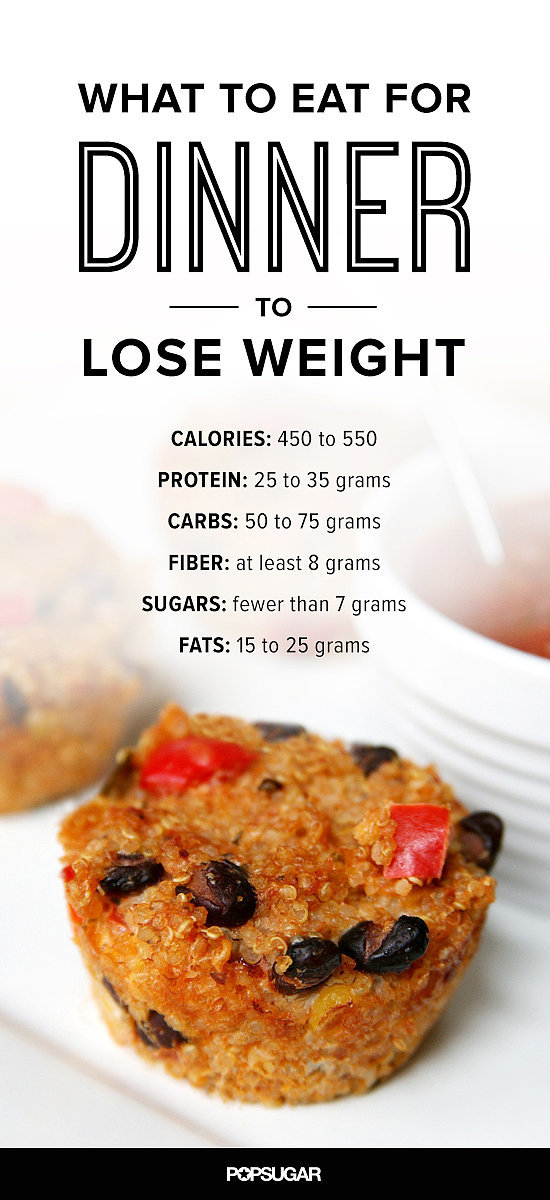The TRUTH About Breakfast and Weight Loss: Does It Really Help You Drop Pounds?
If you want to lose weight, you must eat breakfast; it's almost become a truism at this point, the advice has been repeated so many times. But while previous studies suggested that breakfast leads to a lower BMI, a boost in metabolism, and less hunger throughout the day, a newer batch of research is questioning whether those studies painted an accurate picture of the connection between breakfast and weight loss.
Whether you're a die-hard breakfast eater or can't stand forcing down anything before lunchtime, we've delved a little deeper into the recent scientific claims, as well as the previous studies, to find out if you should switch up your a.m. habits for the sake of weight loss.
Challenging Conventional Wisdom
You've heard a million times that breakfast is the most important meal of the day—but a growing number of studies are challenging that notion. Some question if breakfast (any morning meal—not necessarily a healthy one) has an impact on weight loss, while others look at whether breakfast eaters boost their metabolism by chowing down in the morning. Additional research examines whether previous studies about breakfast and weight loss were conducted in a way that would yield accurate and unbiased results.
In one of the studies, published in the August issue of the American Journal of Clinical Nutrition, researchers split 283 overweight participants who were trying to lose weight into three groups. The first group received the USDA's guidelines on the importance of eating breakfast to lose weight and was asked to eat breakfast every day. The second group was given USDA guidelines for healthy eating without the information about breakfast and was asked to skip the morning meal. A final control group was also given info from the government agency about healthy eating in general and was not instructed to eat or skip breakfast. Researchers found that there was no difference between the weights of those who skipped breakfast, those who ate breakfast, and those who got to choose.
Another study published in the August issue of the American Journal of Clinical Nutrition sought to find out whether people who ate a breakfast up to 700 calories had a higher resting metabolism, spent more time moving around, or ate less throughout the day—all of which could lead to weight loss in the long run, says study co-author James Betts, Ph.D., a senior lecturer of nutrition and metabolism at the University of Bath in the U.K. Researchers found that participants' resting metabolisms in both the fasting group and the breakfast-eating group were about the same as they were at the beginning of the study. Plus, both groups ate the same amount of calories post-breakfast, which might indicate that breakfast isn't as effective at curbing hunger as previously thought. The biggest difference the study authors noted was that participants who ate a morning meal burned more calories doing light activities throughout the day; however, the amount of calories they burned was about the same as they had eaten that morning (so it likely didn't have much of an impact on their overall weight).
For a study published in June in the journal Critical Reviews in Food Science and Nutrition, researchers reviewed several common myths about obesity and weight loss, including the association between breakfast and weight loss. The scientists examined 19 "pro–breakfast" studies and found that evidence from randomized clinical trials, the most reliable form of experiments, was insufficient to "make causal claims about skipping breakfast itself independently affecting obesity."
A similar review published last year in the American Journal of Clinical Nutrition investigated whether previous scientific research correlating breakfast and weight loss lacked probative value, meaning sufficient evidence and unbiased research reporting. In the studies that researchers looked at, they found both of those factors were an issue.
The Other Side of the Argument
Even though these studies attempt to debunk claims made by old research connecting breakfast and weight loss, it's important to take into account the vast amount of research that suggests breakfast is in fact associated with weight loss, a lower BMI, and less hunger throughout the day.
For example, a 2012 review published in the journal Obesity Reviews looked at 153 studies about eating habits and excess weight and found a correlation, though small, between skipping breakfast and excess weight.
In a 1992 study, researchers found that women who regularly skipped breakfast before starting a weight-loss treatment that included breakfast lost more weight than breakfast skippers who continued skipping it.
Finally, a 2010 study found that adolescents who normally skipped breakfast snacked less throughout the day when they started eating a morning meal.
The newest research points out that studies like these, which correlate breakfast and weight loss, were mainly observational, meaning they don't rule out confounding variables, such as breakfast eaters' tendency to be non-smokers, to consume less fat and alcohol, and to be more physically active. And unlike the newest breakfast and weight-loss research, other recent "pro-breakfast" studies have mostly looked into what kinds of breakfast foods promote weight loss, which doesn't address why (or whether) breakfast would aid weight loss in general, says Emily Dhurandhar, Ph.D., assistant professor of health behavior at the University of Alabama at Birmingham and author of the study regarding weight loss and the USDA's recommendation to eat breakfast.
While none of these studies prove that eating breakfast guarantees weight loss, you should know that the newest studies questioning breakfast's impact on your weight aren't without their flaws, either. For example, the study examining the connection between weight loss in breakfast skippers and non-breakfast skippers didn't control what the participants ate in the a.m. (which obviously would have a huge impact on weight). The other study, which measured changes in the metabolism, activity, and hunger in breakfast eaters and non-breakfast eaters, allowed participants to eat any breakfast within 700 calories. This could have impacted the results of the study, says Heather Leidy, Ph.D., an assistant professor of nutrition and exercise physiology at the University of Missouri-Columbia and author of the study that found that breakfasts might curb hunger during the day. Asking participants to eat breakfast—without giving guidelines on what it should include—leads to huge variability in terms of how much food they end up consuming and what exactly equates to "eating breakfast," she says. For example, some might drink coffee or eat a piece of fruit for breakfast, while others eat a stack of pancakes with sides of bacon and eggs.
Little consideration for what participants were eating in the studies was also an issue with both reviews of previous breakfast research, says Leidy.
Plus, in some of these studies, the timing of breakfast wasn't considered, which could also impact the outcome, says Rania Mekary, Ph.D., assistant professor at MCPHS University and a researcher at the Harvard School of Public Health. For example, if someone wakes up at 6 a.m. and eats four hours later, would that be considered breakfast? "It shouldn't because breakfast should be consumed within two hours of rising," says Mekary.
The length of these experiments is also on the shorter side, says Mekary. If the study examining how breakfast impacted metabolism and hunger went on for a longer duration, a difference might have been observed in the participants' resting metabolic rate, she says. Dhurandhar, the author of the study that found no changes in the weights of people who ate breakfast versus those who skipped breakfast, admits that if her study had been longer, it might have yielded different results.
Beyond Breakfast and Weight Loss
Betts' study, which suggested that breakfast isn't crucial for boosting metabolism or reducing hunger throughout the day, did find some health benefits associated with eating breakfast. "We did see higher physical activity levels [in breakfast eaters], and we can confidently say that being physically active is a major factor in improving health, even without weight loss," says Betts.
Previous studies have also made a connection between eating in the morning and better health in general (as opposed to just weight loss). One study by the Harvard University School of Public Health found that women who skipped breakfast had a 20 percent higher risk of being diagnosed with type 2 diabetes than those who ate it daily (though the study was observational). Mekary, one of the co-authors of this study, says that there is also evidence that eating breakfast may decrease your risk of cardiovascular disease.
Additionally, many of the foods that people like to eat at breakfast time—like eggs, oatmeal, and unrefined carbohydrates—are a great source of micronutrients that your body needs, no matter when you eat them, says Dhurandhar.
So Should You Skip Your Morning Meal?
Despite all of the mixed messages, one thing is clear: The jury is still out on whether eating breakfast can help you lose weight. It's important to note, though, that none of the new studies suggest that breakfast leads to weight gain, says Leidy.
Betts finds this particularly interesting since his study allowed for a breakfast up to 700 calories. But it makes sense since, as we mentioned earlier, his study showed that participants burned off the calories in their breakfast by doing activities throughout the day.
Though it's unclear whether eating breakfast or skipping it is better for weight loss, what is clear is that, if you're a breakfast eater trying to drop pounds, what you put on your plate can affect your results. A study published in the journal Appetite found that a breakfast high in carbs and low in fat could make you gain weight, while a low-carb, high-fat a.m. meal may help you shape up. Another study from the Journal of the American College of Nutrition found that participants who ate oatmeal in the morning, as opposed to ready-to-eat oat cereal, were less hungry later in the day than cereal eaters.
The bottom line: If you like including a healthy breakfast as part of your morning routine (or if you're just plain hungry in the a.m.), you don't need to give it up in hopes of losing a few pounds—especially since there's not enough concrete evidence at this point that breakfast has a strong effect on weight loss.
On the other hand, if you're not a huge breakfast fan, it looks like you may be able to skip it—without worrying that waiting to eat until lunch will be all that detrimental to your health or your waistline.
-
Watch your behaviour and maintain weight loss!
-
Burn calories whilst working
-
Could fish oil help you burn fat faster?
-
Burn calories by giving your electric appliances a break
-
The secret to natural weight loss
-
Is De-Stressing the Key to Weight Loss?
If youre no stranger to dieting, then youve probably tried a lot of po
- DON'T MISS
- Lose weight with healthier dips
- 3 Little healthy habits you can start doing today
- 5 Healthy Snacks That Are Keeping You From Losing Weight
- 3 Amazing Juices for Weight Loss
- 6 Ways to Get a Flat Belly for Pool Day
- 7 Yummy 100-calorie snacks - so you can have a treat every day
- The easiest way to curb junk food cravings
- Shed that winter weight
- 23 Healthy Vegetable And Fruit Juices For Weight Loss
- How to Lose Weight WITHOUT Skipping Meals




